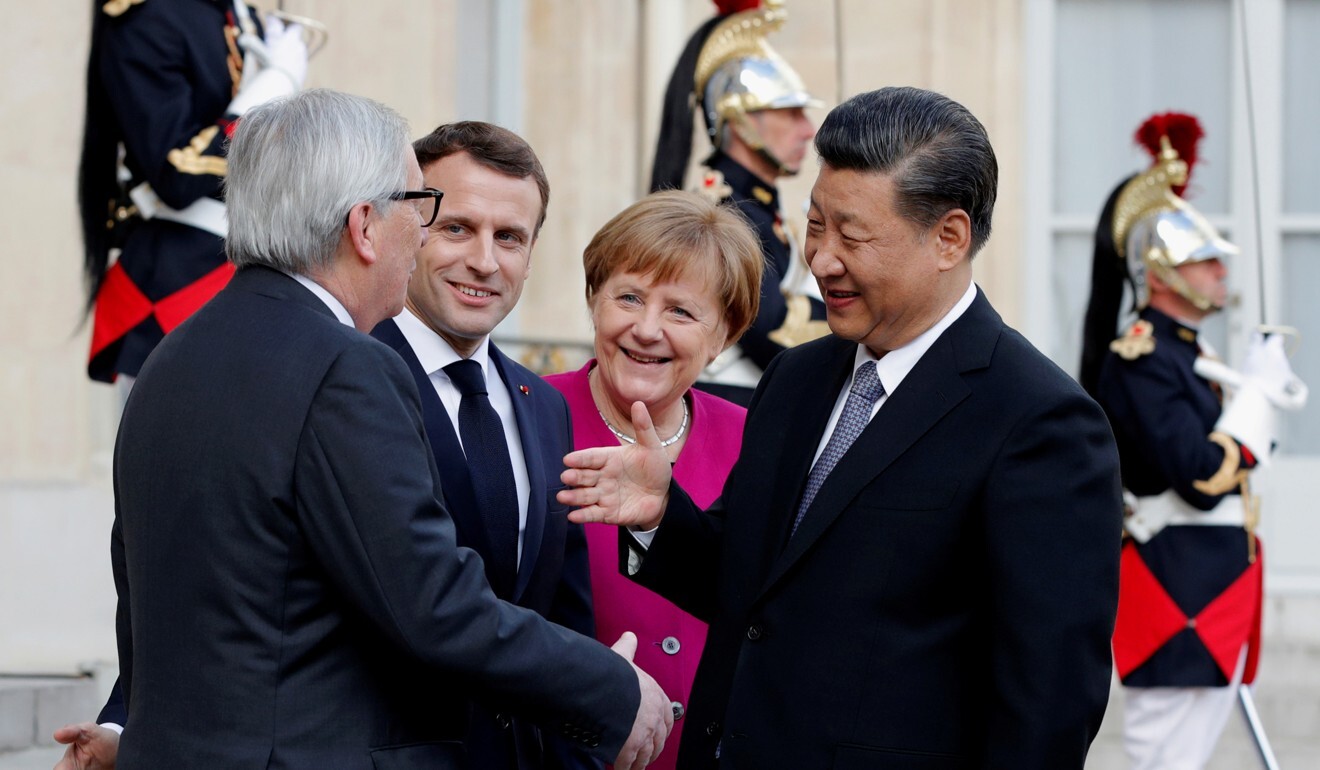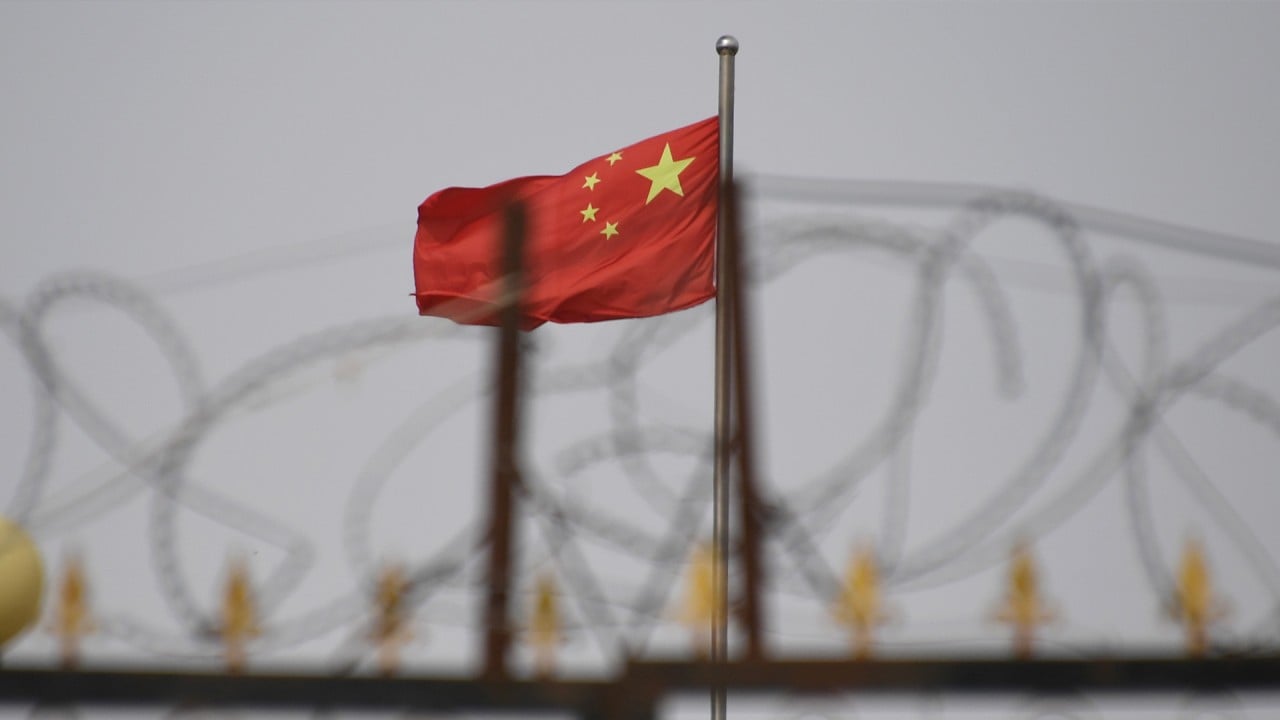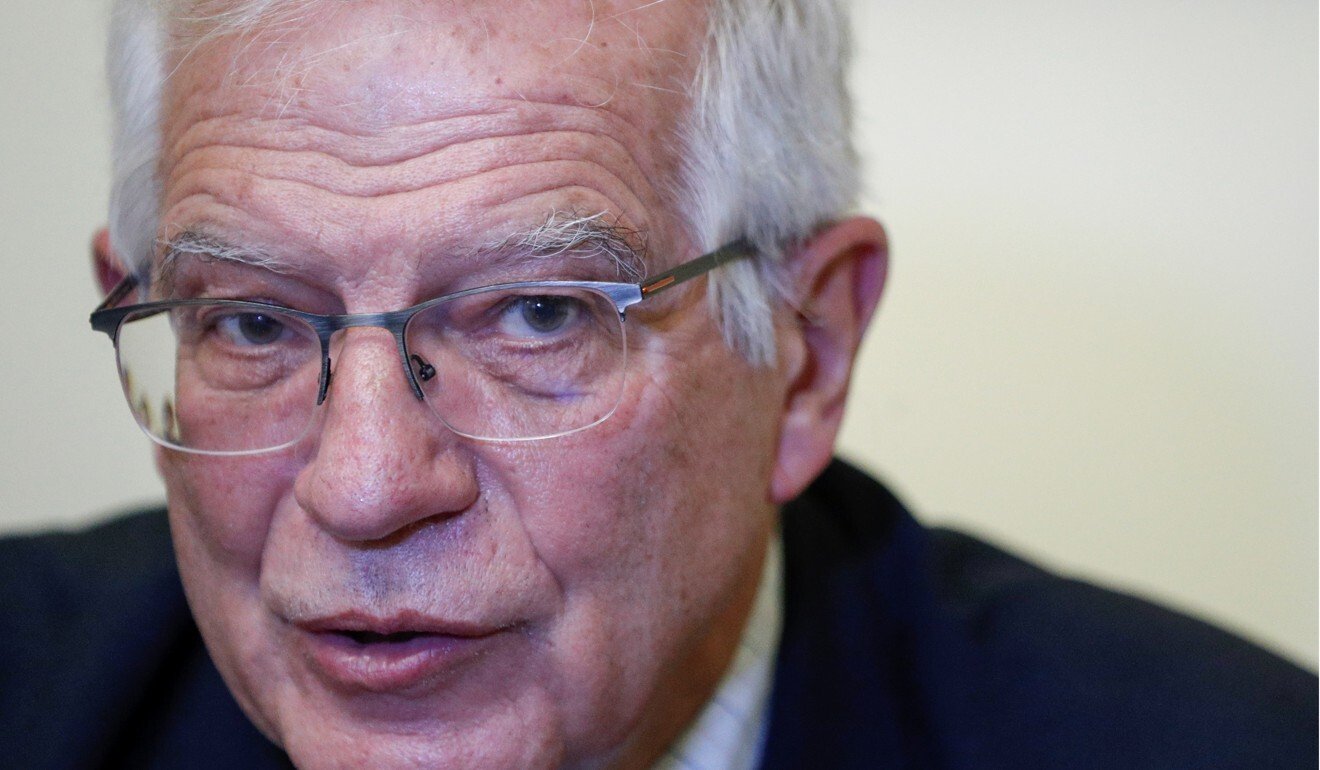
Xi Jinping speaks with ‘old friend’ Angela Merkel in diplomatic push
- Talks with German chancellor arranged at Chinese president’s request to discuss issues related to COP26 climate summit, European diplomat says
- Speculation grows that Xi will not travel to Europe for G20 summit this month or the climate meeting in November
Chinese President Xi Jinping spoke to outgoing German Chancellor Angela Merkel on Wednesday, bidding her farewell and emphasising the solidity of Beijing-Berlin relations, as part of a diplomatic flurry designed to steady European ties.
The leaders reviewed the development of China-Germany relations in a “friendly atmosphere” in their virtual meeting, state broadcaster CCTV reported, with Xi saying Merkel – due to step down after 16 years at the helm – was an “old friend”.
The engagement between China and Europe follows last week’s meeting between top Chinese diplomat Yang Jiechi and White House national security adviser Jake Sullivan, and the announcement last month of a security alliance between the US, the UK and Australia that has angered France.
What is the Aukus alliance, and what does it have to do with China?
Xi told Merkel that China and Germany have pushed for mutually beneficial cooperation and their economies complemented one another.
“China and Germany have developed well on their own and have made greater contributions to the world economy. This proves that the zero-sum game can be avoided completely between countries,” Xi was quoted as saying.
The common interests of China and Europe have overridden their differences, and Europe should remain independent in its foreign policies, he said.
“Both sides should look at China-EU relations from a broader perspective, see each other objectively … and handle their differences in a rational, peaceful and constructive way.”

A statement from Merkel’s office said the two leaders spoke about the development of bilateral relations and current issues on the international agenda.
“Among other things, [the meeting] dealt with preparations for the upcoming G20 summit, issues of climate protection and the fight against pandemics, as well as human rights and the investment agreement between the European Union and China,” the statement said.
The virtual call may be the last official engagement between Xi and Merkel, who helped to nurture EU-China ties during her 16 years as German chancellor. However, her Christian Democratic Union party suffered a chastening defeat in last month’s election.
“The Chinese people will never forget their old friend. The doors of China will always be open to you,” Xi was quoted as telling Merkel. “We hope you will continue to care for and support China-German and China-European relations.”
The online meeting was the latest event in a diplomatic flurry between Chinese and European Union leaders.

As previously reported by the South China Morning Post, Xi will also hold a call with European Council President Charles Michel on Friday, in a week of top-level diplomatic exchanges regarded as efforts by China to improve fraying ties.
This comes amid speculation that Xi will not travel to Europe for the G20 leaders’ summit at the end of the month or for the COP26 climate talks in November, leaving no opportunity for face-to-face talks.
A European diplomat briefed about the Xi-Merkel call said it had been arranged, at Xi’s request, to discuss issues related to the COP26 summit.
COP26, G20 prospects dimmer without China’s Xi Jinping
China responded with sweeping sanctions on a host of EU ambassadors, parliamentarians and academics, leading the European Parliament to stall consideration of an EU-China investment pact that had been agreed to in principle at the end of 2020.

03:36
Beijing hits back at Western sanctions against China’s alleged treatment of Uygur Muslims
Alarmed by the deterioration in ties, in recent weeks the European Union has also sought ways to improve the relationship.
At an informal dinner in Slovenia last week, the bloc’s 27 national leaders discussed China strategy for the first time in a year. An official who attended said they talked about a need to “rebalance” ties with China, while the EU’s de facto foreign affairs chief Josep Borrell wrote in a blog post on Sunday that they “agreed that we must remain strong in our approach, based on the ‘partner, competitive, rival’ tryptic”.
“We must encourage dialogue and cooperation in certain areas like climate policy,” Borrell added. “But we should also be ready to push back when Chinese decisions run counter to our views, notably on human rights and geopolitical choices.”

Beijing is anxiously watching for a resolution on three-way coalition talks in Berlin. The Social Democratic Party is negotiating for a governing coalition with the Green Party and the Free Democratic Party, both of which advocate a tougher line on China.
While a radical overhaul in Germany’s China policy is not likely, some changes are expected. “If you’re steering a tanker and turn it five degrees in one direction, you end up in a completely different place,” said one person involved in the talks.

The interaction between Xi and senior EU leaders comes during the fallout from the announcement of the Aukus alliance, which caused France to lose out on a lucrative submarine sale to Australia. French President Emmanuel Macron has redoubled his push for European “strategic autonomy” and his vision of the EU ploughing a furrow independent of both the US and China.
“The United States wants to confront China. The European Union wants to engage China,” French Foreign Minister Bruno Le Maire told The New York Times in an interview published on Tuesday, adding that the EU must be “independent from the United States, able to defend its own interests, whether economic or strategic interests”.
Cui Hongjian, director of the Department for European Studies at the China Institute of International Studies, a think tank affiliated with the foreign ministry, said: “China-EU cooperation should not be overshadowed by their differences. The upcoming G20 summit and the COP26 meeting in Glasgow will be important occasions where the two sides can work together.”
Beijing is concerned about Europe losing its strategic autonomy by siding with the US on China. The concept of strategic autonomy is rejected by some Central and Eastern European nations like Lithuania and Poland, both of which see the US as integral to European freedom.
French ambassador to return to US after Biden-Macron call
China policy in Lithuania, in particular, is arguably more reflective of Washington than Brussels. One of the bloc’s smallest members, it has become embroiled in a diplomatic dispute with Beijing over Taiwan and has been pushing a tougher EU line on China.
Following the talks in Slovenia, Lithuanian President Gitanas Nauseda said that he thought “the recent events related to Lithuania have a certain impact on the general stance of the EU, given that we see increased aggressiveness on the part of China, its stronger wish to dictate its own terms and, of course, to play a bigger role in the world”.


